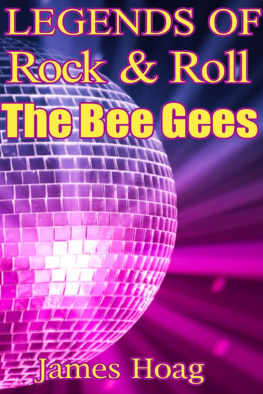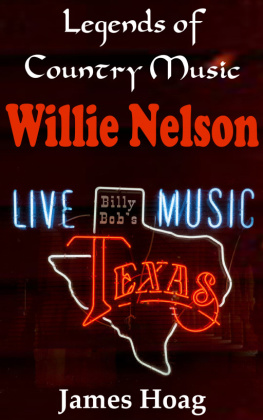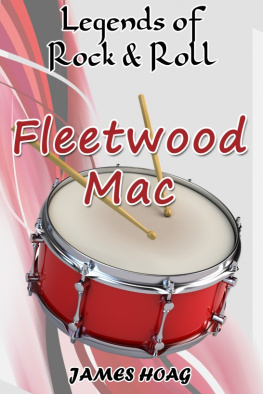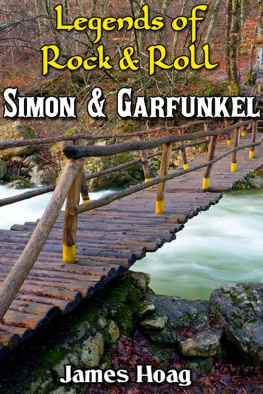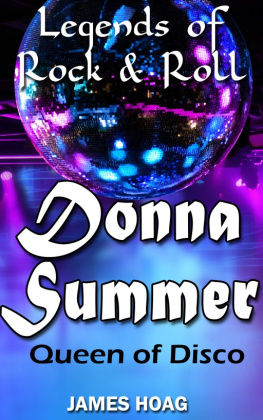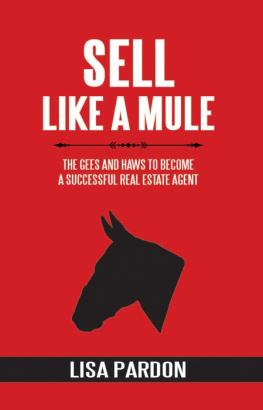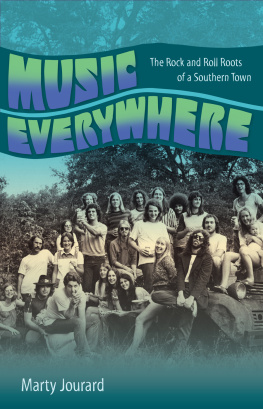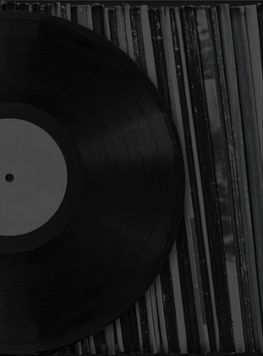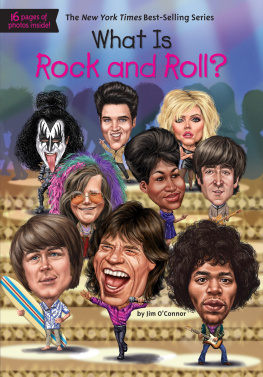Legends of Rock & Roll The Bee Gees
By
James Hoag
~~~
Smashwords Edition
Copyright 2013 by James Hoag
Discover other titles by James Hoag atSmashwords.com
Cover by James Hoag
Smashwords Edition, License Notes
This ebook is licensed for your personalenjoyment only. This ebook may not be re-sold or given away toother people. If you would like to share this book with anotherperson, please purchase an additional copy for each recipient. Ifyoure reading this book and did not purchase it, or it was notpurchased for your use only, then please return to Smashwords.comand purchase your own copy. Thank you for respecting the hard workof this author.
Publishers Notes
Disclaimer
Legends of Rock & Roll The Bee GeesCopyright 2013 James Hoag.
All rights reserved.
No parts of this book may be reproduced inany form or by any electronic or mechanical means includinginformation storage and retrieval systems without writtenpermission from the publisher. The only exception is for areviewer. A reviewer may quote brief passages in a review.
Published by
www.number1project.com
Monument Marketing Publishing LTD.,
53 Hanover Dr., Orem, Utah 84058
Table of Contents
Introduction
Do you know what I liked best about theBritish Invasion of the Sixties? I liked everything. I loved theBeatles and the Stones and Hermans Hermits and the Dave ClarkFive. But one of my favorites has always been the Bee Gees.
I even liked the Bee Gees when they firststarted in the Sixties but when they reinvented themselves in theSeventies and became Disco Gods, I really sat up and took notice.If you havent watched Saturday Night Fever lately, go rent it orget it from Netflix or buy it. Just get it and watch it. JohnTravolta did a decent job in the movie, but, in my opinion, themusic is the star of the show. And most of that music is done bythe Bee Gees.
We have a few family acts that have made itbig in the world of Rock and Roll like the Jacksons and theOsmonds, but no one can stand up to the Bee Gees. Like the Osmondsand Jacksons, these guys were all siblings, had grown up together,and could harmonize. Oh, could they harmonize. From their earlyhits like How Do You Mend a Broken Heart to their disco years,Jive Talking and Staying Alive, the Bee Gees made a mark onthe world of Rock and Roll that is still felt today.
The Bee Gees had two distinct periods ofpopularity. They did pretty well in the Sixties when the BritishInvasion was at its peak. Then, about 1972, they sort of driftedaway, and we didnt hear from them for 3 years. In 1975, theyre-invented themselves and became disco kings.
Two of the three are now gone. I mourn theirpassing because they left us way too early. I remember thinkingwhen John Lennon was killed, There will never be anotherperformance of the Beatles. I felt the same way about the BeeGees when Maurice passed away in 2003.
If you love the Bee Gees, I hope you enjoy mytribute to the Brothers Gibb.
The BrothersGrowing Up
The Gibb Family had five children. Mom wasBarbara May Pass and Dad was Hugh Gibb. Hughie (as he was called)was a professional drummer and leader of his own band during theearly Forties. He and his band would play different venues anddance halls. One night in Manchester, he spotted a pretty girl whohad come to listen to the music. He was immediately smitten and onething led to another and he and Barbara May were married. Barbaraactually worked as his vocalist until the first child came.
On January 12, 1945, Lesley Evans was born inManchester, England, where Hughie was playing at the time. Hughienext got a job on the Isle of Man, so the little family moved thereto Douglass, the capital of the island.
Barry was born Barry Alan Crompton Gibb onSeptember 1, 1946. When Barry was about two years old, he was badlyburned. His mother had set a pot of boiling tea on the table andyoung Barry reached for it and scalded himself. He was immediatelytaken to the hospital where he would spend two and a half months.At one point, no one was sure if he would live. But, of course, hedid, and he says today that he doesnt remember it at all, but thescars are still present.
Three years later, on December 22, 1949 twinboys Robin Hugh Gibb and Maurice (pronounced Morris) Ernest Gibbwere welcomed into the family. Mother, Barbara, was pretty sure shewas having twins. She told her friends that she had had apremonition. This was before ultra sounds and other medical devicesthat can determine the gender of a baby, but the doctor had toldher that he heard two heart beats so they were expecting twins.
Robin is actually the oldest, being bornabout 35 minutes before Maurice. There were now four children inthe family with Barry stuck in the middle between an older sisterand two younger brothers. This did cause him some initial jealousy,but he soon accepted the new boys as part of the family.
The family moved several times while inDouglass. Then in 1953, they moved to Chorlton-cum-Hardy in Manchester, England. Barry was sevenyears old and the twins were about five. They attended Oswald RoadPrimary School. It was here that they learned that they could singand harmonize with each other. They would sing for their friendsand at school.
This was about eightyears after the end of World War II, and Manchester still showedthe signs of war. There were buildings that had not been replacedafter being bombed. The boys found all of this a never endingsource of interest and mischief.
Barry had difficultyadjusting to his new school. It is said that the head master didnot like him and tried to make his life miserable. He became soafraid to go to school, that he actually stopped going for a while,not telling his parents.
The twins were introuble all of the time. Robin liked to set fires. Maurice triedshoplifting once but got caught and that was the end of that
Since Dad was adrummer and had his own band, its not surprising that the boysgrew up listening to music. Their older sister Lesley liked tolisten to Rock and Roll on the radio, and the boys soon became fansas well. They made their own instruments and pretended to play.They would sing along with the radio.
A cute story is toldof the boys signing up to perform at the local cinema. They weregoing to lip-sync to a song. Sounds like a Fifties version ofkaraoke. The three were running toward the theater when one of themdropped the 78 rpm record that they were planning to play, and itbroke. Well, now they had a problem, so they decided to do the songlive. The crowd loved it, and a spark was lit that would grow to bea successful career for the three boys.
Dad noticed, too, andthought he might have something special in his three boys. Hecouldnt have been more right. He got them a one-night gig at alocal club in Manchester called the Russell Street Club, where hisband played. It was an adult club and minors really werentallowed, so Dad smuggled them in through the back door, and theywere able to sing before a live audience. They actually got paidfor singing and now at about nine and six years old, they wereprofessionals.
They calledthemselves various names including The Rattlesnakes and Wee JohnnyHays and the Blue Cats.
Moving to Australia
In 1958, after a break of nine years betweenchildren, the Gibb family had their fifth child, a boy, Andrew RoyGibb, born on March 5. Andy would grow up to have his own careerand actually compete with his brothers for the attention of therecord buying public. Barry was eleven and his twin brothers werenine. Mom Barbaras sister, Audrey, decided to immigrate toAustralia and Barbara thought that might be a good idea for theGibb family. Therefore, that same year, the family moved again;this time to Brisbane, Australia.

